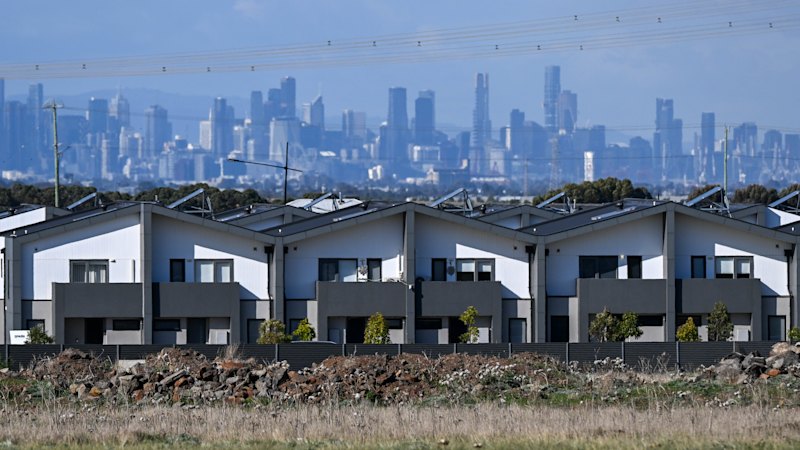
News
October 08, 2025
Melbourne’s booming west needs trains for the sake of all of us
Too many residents have to commute out of the region to work, putting huge pressure on the inadequate transport infrastructure.
Melbourne's western suburbs are experiencing a population boom, but this growth is putting a strain on the region's transport infrastructure, particularly the lack of adequate train services. Residents are increasingly finding themselves forced to commute long distances out of the west for work, exacerbating existing problems and highlighting the urgent need for improved rail connections.
The western region of Melbourne has seen significant residential development in recent years, attracting families and individuals seeking affordable housing. However, the job market hasn't kept pace with this population influx. This mismatch has led to a situation where a large number of residents must travel to other parts of Melbourne, often the CBD or eastern suburbs, for employment opportunities.
This daily exodus places immense pressure on already stretched transport networks. Roads become congested during peak hours, leading to lengthy commutes and increased frustration for drivers. Public transport options, particularly trains, are often overcrowded and infrequent, making them an unattractive alternative for many. The current rail infrastructure struggles to cope with the sheer volume of passengers, resulting in delays, packed carriages, and a less-than-ideal commuting experience.
The consequences of this inadequate transport infrastructure are far-reaching. Long commutes negatively impact residents' quality of life, reducing the time they can spend with family and friends, and increasing stress levels. The traffic congestion contributes to air pollution and negatively affects the environment. Moreover, the lack of efficient transport options can hinder economic growth in the west, as businesses may be reluctant to invest in areas that are difficult to access.
Addressing this issue requires a significant investment in expanding and upgrading the rail network in Melbourne's west. This could involve extending existing lines, building new stations, and increasing the frequency of services. Improved bus connections to train stations are also crucial to ensure seamless integration across the public transport system. Such improvements would not only ease congestion and reduce commute times but also unlock the economic potential of the region and enhance the overall liveability of Melbourne's booming west. The need for action is clear: providing adequate train services is essential for the sake of all residents in Melbourne's west and the future prosperity of the region.
The western region of Melbourne has seen significant residential development in recent years, attracting families and individuals seeking affordable housing. However, the job market hasn't kept pace with this population influx. This mismatch has led to a situation where a large number of residents must travel to other parts of Melbourne, often the CBD or eastern suburbs, for employment opportunities.
This daily exodus places immense pressure on already stretched transport networks. Roads become congested during peak hours, leading to lengthy commutes and increased frustration for drivers. Public transport options, particularly trains, are often overcrowded and infrequent, making them an unattractive alternative for many. The current rail infrastructure struggles to cope with the sheer volume of passengers, resulting in delays, packed carriages, and a less-than-ideal commuting experience.
The consequences of this inadequate transport infrastructure are far-reaching. Long commutes negatively impact residents' quality of life, reducing the time they can spend with family and friends, and increasing stress levels. The traffic congestion contributes to air pollution and negatively affects the environment. Moreover, the lack of efficient transport options can hinder economic growth in the west, as businesses may be reluctant to invest in areas that are difficult to access.
Addressing this issue requires a significant investment in expanding and upgrading the rail network in Melbourne's west. This could involve extending existing lines, building new stations, and increasing the frequency of services. Improved bus connections to train stations are also crucial to ensure seamless integration across the public transport system. Such improvements would not only ease congestion and reduce commute times but also unlock the economic potential of the region and enhance the overall liveability of Melbourne's booming west. The need for action is clear: providing adequate train services is essential for the sake of all residents in Melbourne's west and the future prosperity of the region.
Category:
Business